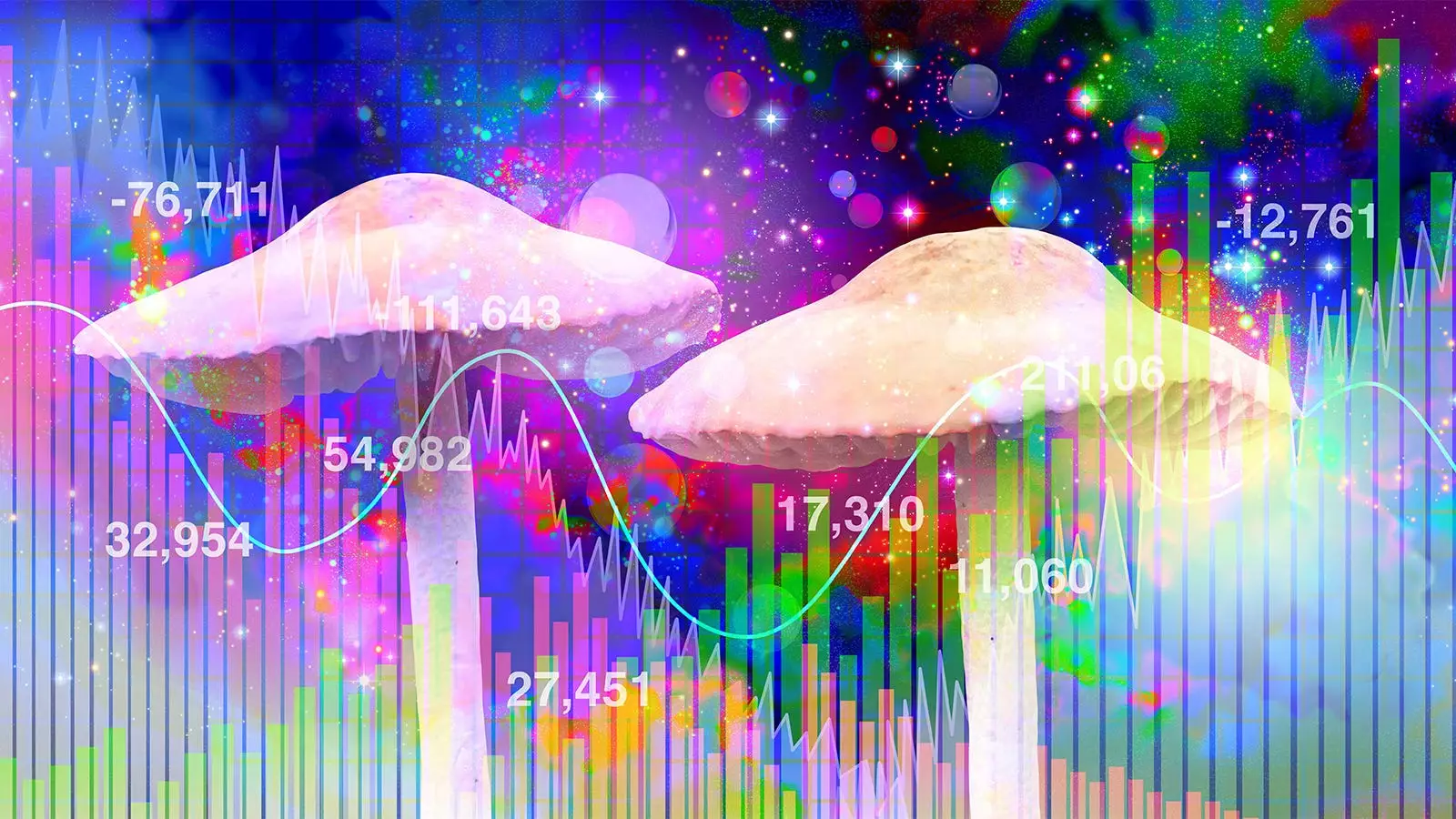In recent years, there has been a growing interest in the therapeutic potential of psychedelics for the treatment of mental health disorders. Research studies have demonstrated promising results, showing the efficacy of psychedelic substances such as DMT, psilocybin, MDMA, and ketamine in alleviating symptoms of depression, post-traumatic stress disorder (PTSD), and other mood disorders. These findings have sparked excitement in the medical community and have led to further exploration of these substances as potential treatments. In this article, we will delve into the advancements made in the field of psychedelic-assisted therapy and the impact they may have on mental health treatment.
One of the psychedelic substances that has shown promising results is N,N-dimethyltryptamine (DMT). In a Phase IIa trial, researchers observed significant reduction in depressive symptoms compared to the placebo group (P=0.02) when using the Montgomery-Asberg Depression Rating Scale (MADRS). Administered with supportive therapy, the antidepressant effects of DMT were seen within just a week after a 21.5-mg infusion of the agent, known as SPL026. This development has opened up possibilities for DMT as a potential treatment for depression and other mood disorders.
Another psychedelic substance that has garnered attention is psilocybin, commonly found in “magic mushrooms.” A Phase II trial demonstrated that a single dose of synthetic psilocybin resulted in significant improvement in depression symptoms and functional disability in patients with major depressive disorder. Patients experienced sustained improvement in MADRS score on day 43, with the treatment also co-administered with psychological support. Interestingly, psilocybin has also shown potential in the treatment of anorexia and treatment-resistant bipolar depression, further emphasizing its therapeutic versatility.
In the realm of post-traumatic stress disorder (PTSD) treatment, MDMA has shown promising results. A late-stage trial highlighted the therapeutic effects of MDMA when combined with psychotherapy in significantly improving PTSD symptoms compared to placebo with psychotherapy. The compound, which received breakthrough therapy designation in 2017, also demonstrated improvement in clinician-rated functional impairment. The potential benefits of MDMA extend beyond PTSD and depression, raising hopes for its application in other mental health disorders.
While not traditionally classified as a psychedelic, ketamine has also demonstrated its therapeutic potential in the field of mental health. A major study published in May showed that ketamine is as effective as electroconvulsive therapy (ECT), the “gold standard” for treatment-resistant depression. Following a 3-week treatment period, a higher percentage of patients in the ketamine group had a treatment response compared to those in the ECT group. Additionally, esketamine nasal spray has received FDA approval for the treatment of treatment-resistant depression. These advancements highlight the effectiveness of ketamine in addressing major depression and offer new possibilities for treatment options.
The promising results obtained from various clinical trials have paved the way for further research and development of psychedelic-assisted therapies. The potential of these substances to alleviate the suffering of patients with treatment-resistant mood disorders and other mental health conditions is significant. As research progresses, it is crucial to evaluate the therapeutic efficacy of psychedelics in different disorders and determine the most effective treatment protocols.
The advancements in psychedelic-assisted therapy have brought renewed hope to the field of mental health treatment. From the potential of DMT to the versatility of psilocybin, MDMA, and ketamine, these substances have demonstrated their efficacy in alleviating symptoms of depression, PTSD, and other mood disorders. While further research is needed to fully understand the mechanisms of action and optimize treatment protocols, the path towards integrating psychedelics into mainstream mental health care is becoming increasingly clear. With careful consideration of safety, efficacy, and ethical guidelines, these advancements have the potential to revolutionize the way we approach and treat mental health conditions.


Leave a Reply